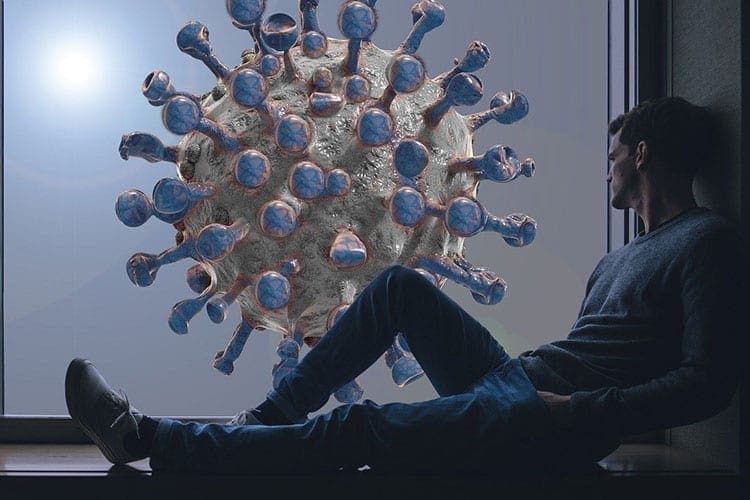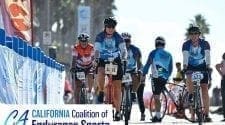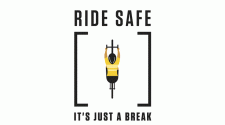Psychology Creates a New Set of Issues that either Contribute or Reduce our Risk of a Negative Outcome
As a Clinical Health Psychologist, I work on the front lines of primary care daily with individuals suffering from acute and chronic physical health concerns. As the impact of the COVID-19 pandemic increases, I have seen many responses to the viral outbreak that parallel common social and individual psychological reactions to managing a condition that is not well understood and that places us as a community in the situation of having to make a decision based on information that is uncertain, at times vague, and changes over time. Essentially we are impaired in our ability to discriminate effectively the factors impacting our life due to the novelty of the situation and as such psychology takes over and creates a new set of issues that either contribute or reduce our risk of a negative outcome.
From Shock and Denial to Acceptance
There is some controversy regarding stages of change in our concept formation regarding novel or unfamiliar situations. However, most models of change seem to mimic many of the stages of death and dying proposed by Elizabeth Kubler-Ross who worked with cancer patients in the 1960’s. Kubler-Ross noted that individual’s faced with the situation of their cancer diagnosis (during a time when treatment was limited and mortality rates were much higher) tended to experience the following reactions; 1) Shock/Denial, 2) Bargaining, 3) Anger, 4) Depression, 5) Acceptance. Briefly, the stage of Shock/Denial tends to reflect in an individual not fully comprehending the magnitude of the current situation of which they are presented. Thoughts like “This must be a misdiagnosis” “It couldn’t happen to me” or “They must be wrong” are common self-statements that depict this stage. Bargaining reflects the following stage and is often depicted by the individual continuing to place themselves at risk but rationalizing a lower perceived risk with statements such as “I have a great immune system” “I eat well so it shouldn’t affect me” “I’ll only be out for an hour.” Anger can be represented as anger directly related to the event or displaced towards others who are not directly involved in the incident; “Damn the government for not doing their job”, “This wouldn’t have happened if people hadn’t had a complete freakout.” Depression generally takes the form of internalized apathy “We are all going to get this. What’s the use?” While Acceptance reflects the individual’s eventual ability to weigh the circumstances of their life in contrast to additional environmental factors that may increase or decrease exacerbation risk. The stages do not follow any particular order, and one can pass through a stage only to re-experience it again later.
Fundamental Attribution Error
Underlying this process is a series of logical fallacies we all experience and of which we are prone. Of the most concerning are two fallacies that have major implications; Fundamental Attribution Error and the Optimism Fallacy. Fundamental Attribution Error is an over-emphasis of one attributing positive outcomes towards oneself as being related to personal characteristics while negative outcomes are explained by being influenced by environmental factors. Think “I won’t get sick because I am unique” versus “I got sick because I was forced to work with sick people.” On the converse of this fallacy is the tendency to attribute other’s successes as being associated to “Luck” versus failures as being associated with “personal attributes.” Think “Bob got the promotion because he was lucky” versus “Bob got sick because he is a horrible person.”
Optimism Fallacy
Furthering issues with the above fallacy is the second fallacy of Optimism Fallacy or the tendency for us to overestimate our skill level when faced with a novel situation. This fallacy in many ways is an extension of the Fundamental Attribution Error but increases error risk as the individual sincerely begins to believe that they somehow hold uniqueness that removes them from the same risk factors as others within their community. “I won’t get sick because I never get sick.”
The reality is that Mother Nature does not recognize fallacy thinking. Illnesses are objective and indiscriminate.
They do not care about psychology, but your psychology should care about illness trends because you and the life of those around you depend on it. Practice healthy hand washing, avoid touching your face, distance yourself from close contact with others at higher or unknown risk, wear protective gear when in higher-risk settings (gown, gloves, mask, protective eyewear), take current CDC recommendation seriously as related to COVID-19. Information about COVID-19 can be found where I work at https://health.ucsd.edu/patients/Pages/2019-coronavirus.aspx. Become familiar with this information and educate your loved ones. Be conscientious of the health of those around you and respect other’s boundaries as they strive to limit losses associated with this outbreak. Finally, realize that this pandemic does not mean that we cannot enjoy each other. We can, but the manner in how we enjoy each other’s company will need to change to better reduce the risk of exposure and transmission. Be creative.
Article by Eric Yelsa, Ph.D.
Eric Yelsa, Ph.D. is a clinical health psychologist in private practice in San Diego. He served as an assistant professor through the University of Utah Hospital Pain Management Center Department of Anesthesiology where he worked with a number of elite and professional athletes recovering from sport-related trauma. He has been a competitive cyclist since 1981. He is a USAC level 3 certified coach and certified power-training coach, has presented at the USA Cycling and is an active member of the American Psychological Association Division 47 Exercise and Sport Psychology. He can be reached for consultation at [email protected]
Image by Gerd Altmann from Pixabay















